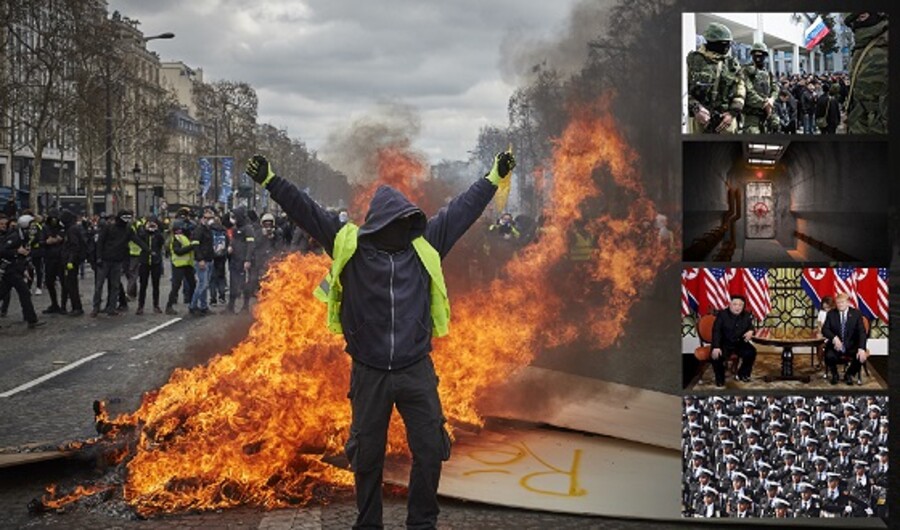
This Week: Five Events You Need to Know (March 23)
Here are five of the most important news stories this week, as well as relevant links to the full articles and videos here on theTrumpet.com.
How Russia Conquered Crimea: A Five-Year Retrospective
Five years ago on March 18, Russia officially annexed Ukraine’s Crimean Peninsula. “The Ukraine debacle has taken us a giant step closer to World War iii,” Trumpet editor in chief Gerald Flurry wrote at the time.
Understanding what really happened in Crimea, from the state of the world in the 1980s to the era of Vladimir Putin to today, will help you realize why world war looms in the future.
Collapse of Trump-Kim Talks Hastens Japan’s Military Normalization
“The major question that has emerged from the Hanoi talks [between United States President Donald Trump and North Korean leader Kim Jong-un] is what Japan will do now,” George Friedman wrote for Geopolitical Futures on March 5. He pointed out that Japan has the third-largest economy in the world, a powerful military and “an enormous capacity to increase that force.”
The collapse of those talks gives Japan more reason than ever to accelerate its return to militarization. Such a militarization of the supposedly pacifist nation has profound, prophetic ramifications.
India Signs $3 Billion Nuclear Submarine Deal With Russia
Earlier this month, India signed a $3 billion contract to lease Russia’s Akula-1 class nuclear-powered attack submarine for 10 years. Called the Chakra iii by the Indian Navy, the Russian Akula-1 class submarine will likely be delivered to India by 2025. The Chakra iii will be India’s third Russian-acquired nuclear attack submarine.
By signing this deal, which took six years of negotiations, India is ignoring America’s threats of sanctions and showing that it places a higher value on its alliance with Russia and other regional powers.
Yellow Vest Protests Continue as Europeans Burn for New Leadership
For the 18th week in a row, protesters wearing yellow vests spilled into Champs Elysées, Paris, to vent their anger. The latest wave of protests on March 16 was especially notable for the violence of troublemakers within the protest group, as well as for police inaction.
Around 5,000 police officers were deployed against only a few hundred protesters. However, the police force did little to stop the violence, watching while protesters smashed and looted storefronts and burned buildings, cafes and cars for seven hours.
The yellow vest movement represents a larger wave of popular anger sweeping through Europe. “In a way, it’s a revolution,” wrote Sylvie Kaufmann, a columnist for Le Monde.
Unrest and discontent are increasing in European nations as more people look for a change in leadership. They want a leader who will address their concerns. The question is, where will such a leader come from?
Private Bunkers Increasing in Popularity
Around the world, individuals are paying big bucks to prepare for a nuclear disaster. “Certain people are getting richer,” said Paul Weldon, managing director of the Panic Room Co., “and, as the world’s issues get more complicated, security comes higher up their list of things they need and want.”
More and more people are taking world dangers seriously. But will safehouses and stockpiles of food be enough? Or will people need the supernatural help that God promises to provide?
“This Week” appears every weekend. To receive an update on our latest stories in your inbox ahead of time every Friday afternoon, subscribe to the Trumpet Brief daily e-mail. Sign up by clicking here or by visiting theTrumpet.com home page. ▪
